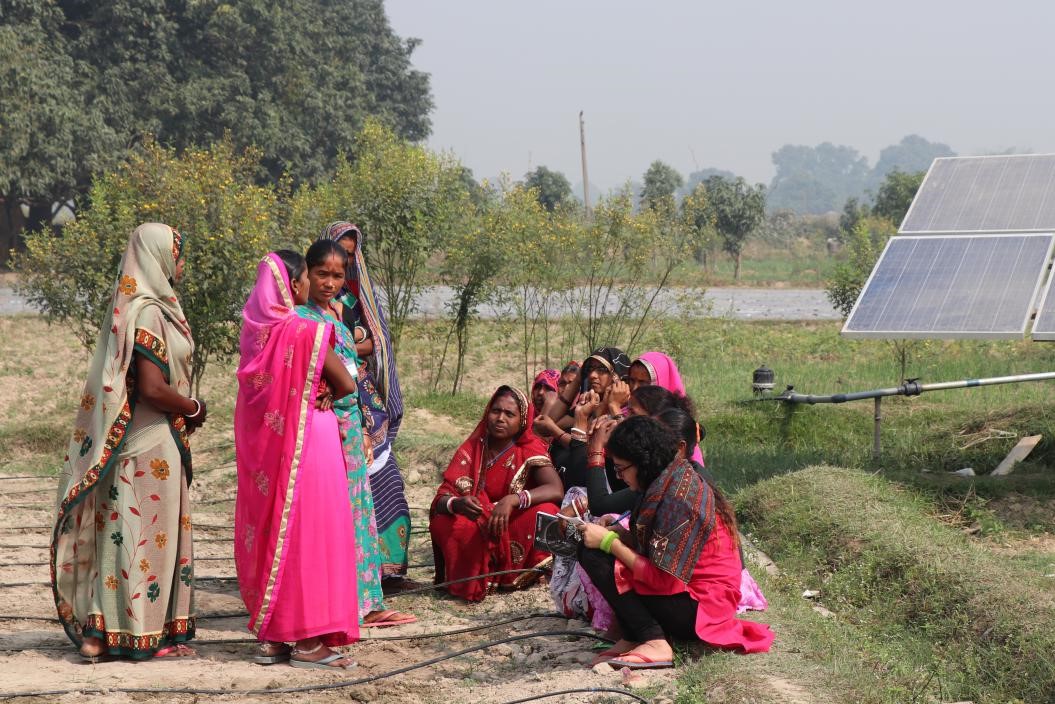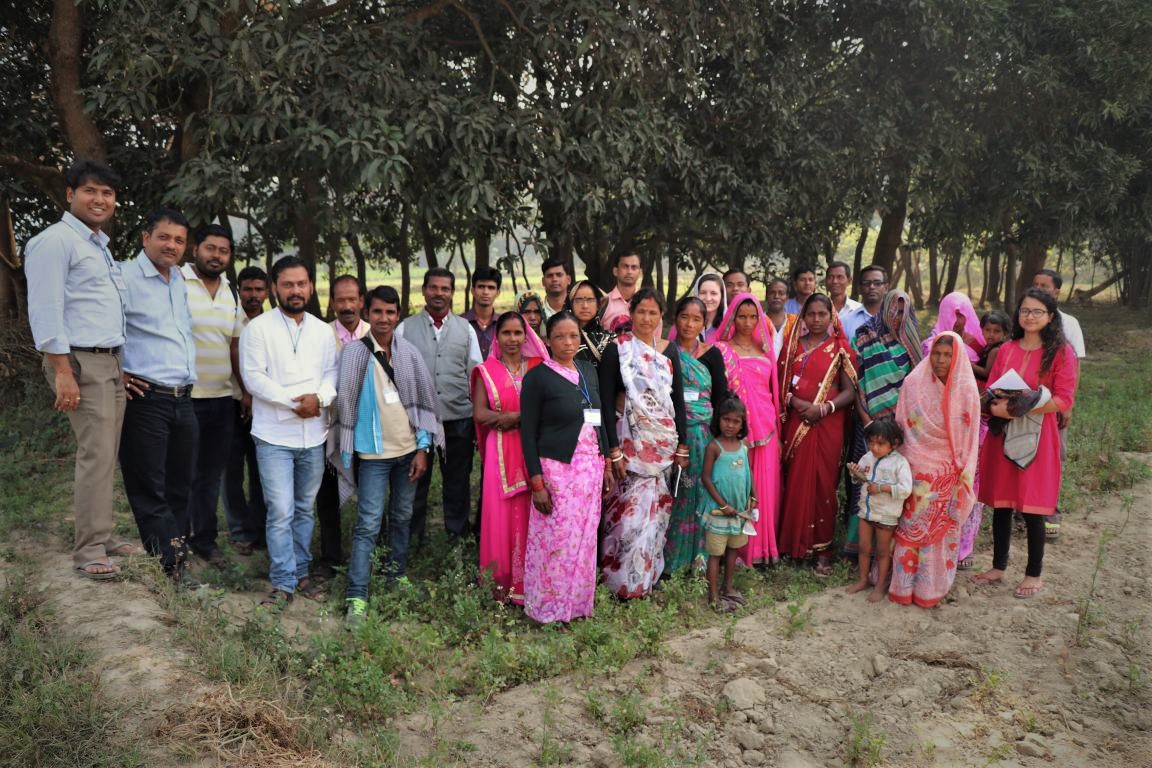Authors M Raut, A Reckers, R Bastakoti
The idea
Too often, development work can feel light years away from project beneficiaries. Even well-intentioned field visits, no matter the amount of sunburn and bug bites we bring back to the office, can end up as an affirmation tour of researchers’ pre-existing beliefs. We, a team of researchers, had an idea for a different type of field experience- an event which centered around a learning experience for farmers. Their questions and observations would guide our understanding, not the other way around. ACIAR were very supportive and sponsored this initiative. Following this experience, we have further refined our approach to participatory research
Our idea was to bring farmers from our project sites in Saptari (Nepal), NW Bangladesh, and Bihar and West Bengal (India) to one project location for a farmers’ meet. Even though farmers received similar biophysical and social interventions, they are practicing different models of collective farming. A large group meeting would allow them to discuss how they managed to deal with diverse technical and social issues such as how to fix a solar pump, or how the tomatoes in their field were taking off.
We selected Bihar, India, and had ambitious goals for our “Farmers’ Meet”. From the name of the event down to the accommodations, we wanted the farmers to feel welcomed. In addition to giving us a unique look into how the collectives functioned, we also hoped that the event would encourage farmers to reflect on their groups and develop agency as important stakeholders in the project.
Similarly, we knew challenges existed. Farmers from each of the sites spoke different languages. We planned to rely heavily on visuals, songs and skits to allow for easier interpretation, alongside our field officers who provided translation. We also recognized that the three sites differed in terms of cultural beliefs about agriculture, social dynamics, and nature of collective farming. While this could complicate the cross-learning possibilities, we also hoped that understanding farming realities in different regions could open farmers’ eyes to possibilities outside of their own experiences.
The Meet
At the gathering, the Bihari farmers were perfect hosts. West Bengali farmers watched carefully as Bihari farmers connected the drip irrigation system to the solar pump, while a group of Nepali and Bihari women discussed the system of valves that led from the pump to the piping.
Stooped over a fruitless okra and mung bean crop, Bihari farmers told the story of the previous year’s crop failure due to untimely irrigation and inappropriate varietal selection. For the upcoming season, they shared how they had learned the importance of providing timely irrigation and selecting suitable varieties. The Bihari farmers’ story of how they arranged a vegetable buyer to regularly purchase directly from their fields had the Nepali and Bengali farmers nodding in agreement that this was something they would also pursue.
Unexpected challenges also emerged. The project, guided by local farmers, provided permanent solar installations in Bihar, but smaller, mobile panels in Nepal. The Nepali farmers were jealous that the Bihari farmers didn’t need to lug out solar panels to run the pump. We as researchers have to be more careful with what we are showcasing, and how. While we don’t want farmers to be upset about the intervention they have received, we also don’t want them to continually ask for more assistance from the project.
Secondly, we had to balance farmer-focused activities with our varied research agenda. While it was also a meeting bringing a range of researchers and project staff together, discussions and clarifications often focused on their concerns rather than gathering information from organic discussion among farmers as they share and reflect on each other’s experiences.
Reflection
Through reflecting on the Farmers meet, we realized how valuable it was as a midpoint assessment of project goals and progress. For the research team, we received immediate and unfiltered feedback on pertinent cross-site questions, such as how government policies differ between sites, and how collectivization is perceived across sites. Farmers also appeared more motivated to learn about other farming practices, and seemed to have a better grasp on overall project goals. These types of changes will be further assessed in coming months.
For us, this type of participant-centered event will be a tool we turn to across our research projects. While certain improvements or compromises must be made, the meet allowed for mutual learning and understanding, among researchers and farmers, in a way that we have not experienced through standard, singularly-focused events.
Report
Partners Meet and Collective Reflection (PDF 2 MB)
Video







